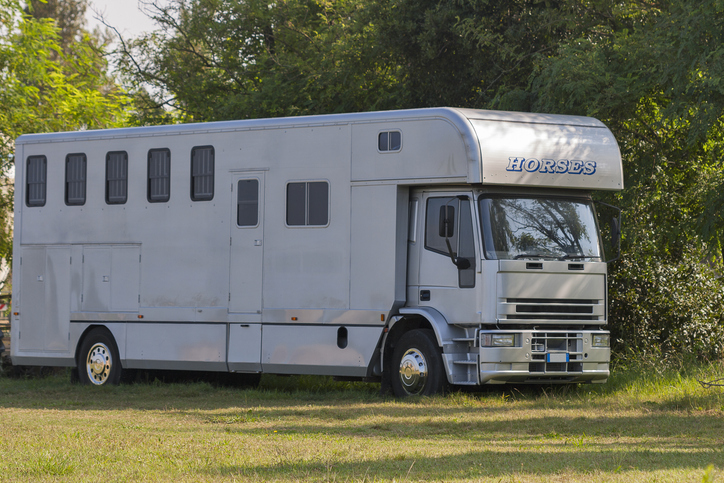
Frustration is building after months of wrangling over a requirement introduced in May for any cab modified since 2005 to get a certification that can cost up to $30,000.
The agency has said the rules it is enforcing now are "ambiguous" and inconsistently applied before - but also admitted it has no evidence that unsafely modified vehicle cabs have caused deaths or serious injuries.
It is now promising a solution in a fortnight that balances safety with fairness to owners.
However, many vehicle owners are sceptical about that, and of the reasons for the clampdown in the first place - like Mosgiel horse truck owner Charlotte Young.
"It feels to me that someone's just woken up one day and looked for a job," Young said.
"I'm not sure that this is driven by driver safety.
"I have three teenage boys who are getting out on the road. I think that should be their [NZTA's] priority because young men are dying on our roads, whereas mothers driving horsetrucks are not."
Waka Kotahi said there is evidence there are poorly modified cabs but also said: "Anecdotal evidence of harm caused by this risk has not been found."
Cabs are modified in New Zealand, or overseas then imported, usually to connect to the living space behind. Tests in 2018 - disputed by some engineers - on bare truck cabs showed this could reduce their strength by 25 - 85 percent.
Poor application of the years-old rules has seen many vehicles imported or repeatedly approved at six-monthly Certificates of Fitness or COFs, without their lack of certification being queried.
"Once Waka Kotahi realised the guidance was causing ambiguity for inspectors, it specifically announced that cab modifications needed certification," NZTA said.
Geoffrey Mayne, of Kaiwaka, north of Auckland, said this was NZTA's problem, not his.
"You're not going to get around the safety issue," said Mayne, whose motorhome is due for a new COF in a month.
"But I want to know now who is actually financially liable for whatever work has to be done.
"For surely I can't be because this vehicle has had 30 COFs from various agencies ... all certified by Waka Kotahi. It's their fault they've failed in their duty to enforce the rules."
He has been writing to the transport minister asking who is liable.
No solution yet
A collective representing about 70 horse truck owners had its lawyer write to NZTA last week, outlining why they think the clampdown is misguided.
Julian Stone, of Waikato, is one of them.
"It isn't acceptable to simply put people off the road ... when the rules aren't clear, are in dispute and there's no easy way to rectify," Stone said.
It would be simplest to accept previous on-road inspections and make existing vehicles exempt, he said.
But NZTA has failed to come up with a solution.
It set up a 24-strong panel - with 10 specialist engineers - in June, but that panel is now in hiatus and the issue has been sent 'upstairs' to a project team dominated by lawyers.
Minutes of the panel's meetings show it debated a dozen solutions but failed to settle on any one, as each had drawbacks.
Mayne won't try for a new COF while it remains so uncertain, and believes this could stagger on because the agency fears being held liable.
'Limbo'
Barb Smith, of Dunedin, calls the agency "confused" and "hamstrung", with the result that her motorhome trip to Hamilton is stalled.
She and husband Russell's retirement gift to themselves this year, a 2012 Fiat motorhome, was due for a COF this week.
"We've got a beautiful, expensive, lovely motorhome sitting out here at our front door that we actually legally cannot go out on as from the 20th of September," she said.
"We're in the state of limbo."
Custom-made motorhomes built to European standards should not be lumped in with backyard junkers, Smith said.
She is among 100 owners who have laid complaints against NZTA via the Motor Caravan Association.
'Commercially fraught'
The cab cutout clampdown has also increased the commercial risks for manufacturers who modify trucks into buses - a vehicle increasingly popular for school runs.
Richard Drummond, of Rotorua company Kiwi Bus Builders, will keep building them, even though any cab cutout now needs an exemption from NZTA.
"[It's] commercially fraught with danger really because ... you've already got the truck, and you're way down the path of actually building it.
"But there is no guarantee of ... getting an exemption," Drummond said.
"You can't take it as a given."
He has a few truck-buses in this situation.
Drummond puts it on the truckmakers themselves to get involved - though for existing vehicles, trying to enforce rules retrospectively was a mistake, the bus builder said.
"It just smacks of somebody looking for a problem, doesn't it."
Charlotte Young in Mosgiel is watching the clock tick down to her next COF due in December.
Engineers have already cast doubt her horsetruck will pass, jeopardising her family's showjumping trips and part-time horse breeding business.
Ironically, she already had a smaller truck, with an LT400 and a COF, but is selling that because she needed the bigger one.
"I have a deadline looming which not only our sport but also our business relies on," Young, of Grassyards Farm, said.
"So I would like to know whether it's compliant now, not in December when I won't be able to get anything fixed until end of January, February."












